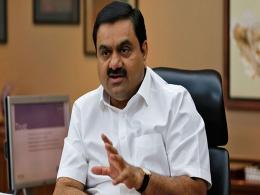Contrasting official stats on Indian economy continue to pour out with the latest numbers on wholesale prices indicating India has slipped into deflation. Wholesale price index (WPI) declined 0.39 per cent in January over the year-ago period after remaining close to zero for the previous two months, official figures show.
WPI-based inflation had increased 0.11 per cent in December. While provisional numbers for November had showed that it was down to 0 per cent, the final revision of inflation for November shows wholesale prices had slipped in the negative declining 0.17 per cent over November 2013.
The last time wholesale prices have declined year-on-year was in July 2009.
The decline in prices of wholesale products do not have an overbearing impact on RBI’s monetary policy as the Indian central bank now uses consumer prices as the key parameter defining its policy moves. However WPI is still used for other purposes including fiscal policy matters as also others.
Core inflation also dipped to its lowest level since June 2009, down 0.9 per cent compared to 1.58 per cent in the previous month.
While specifying the underlying reasons for the fall Shilan Shah, economist at independent macroeconomics research outfit Capital Economics, said, "The main reason will be the fall in the core component, which is obviously a sign of increasing economic slack, and the fall in the headline rate was also due to the sharp fall in oil prices that we have seen over the past few months."
"Basically it builds on what the consumer price data was showing, that core pressures have weakened and that there is a fair amount of spare capacity in the economy." he said.
The index for manufactured goods which constitutes around two thirds of the basket declined 0.3 per cent while fuel and power declined 2.4 per cent. Primary articles sustained a decline of 1.3 per cent over last month. Food component of the WPI saw prices rising for second consecutive month by 8 per cent.
Industrial production statistics had showed it still remains a cause of concern as growth moderated owing to slowdown in mining activity.
Consumer inflation in the country in contrast, rose to 5.11 per cent in January based on revised calculations after sinking to 4.28 per cent in the previous month. The measure of CPI has stayed below the level of 6 per cent as targeted by the RBI for January 2016.
The recent bout of data provides impetus for the RBI to slash policy rate and is expected to act after the Union Budget announcement by the end of this month.
"The revised CPI inflation series significantly undershooting RBI’s envisaged trajectory should give RBI the comfort to ease its monetary policy by an incremental 50 bps in FY16. We see scope of an additional 25 bps of easing subject to commodity prices remaining soft," wrote Shubhada Rao, chief economist at Yes bank in a note.







